Professor Barleygrow paces across the well-worn carpet of his office. “This is what linguists like you don’t understand,” he growls to his colleague, gesturing at charts pinned to his wall. — “It's clearly social forces at play!”
The charts show how English sounded radically different in the Middle Ages from how it sounds today. Barleygrow stares at the charts without speaking, seemingly on the verge of a breakthrough. But it is not to be.
Defeated, he sits down on a threadbare chair and continues his rant, “The English language wouldn’t completely change how its vowels were pronounced without some… motivating factor! The Black Death, class consciousness, the influence of the French — one of these has to have been the culprit. I just can’t figure out which one!”
His colleague shakes her head dismissively. “You're overcomplicating things, as usual, Barleygrow. Sometimes languages just… change. What looks to you like a grand historical drama is really just the mechanical domino effect of one sound change triggering another.”
Now, our dear grumpy Professor Barleygrow is fictional, but the mystery he puzzled over is anything but — and it’s one linguists have wrestled with for many years: what caused the Great Vowel Shift?
This dramatic change in the pronunciation of the English language occurred between 1400 and 1650, and transformed how English speakers pronounced many of the language’s vowels. The change was so significant that it marks the boundary between Middle and Modern English.
I’ve explored elsewhere how the Great Vowel Shift worked. But, like Professor Barleygrow, some of you have asked why the Great Vowel Shift occurred.
And you’re in good company: scholars, too, have wondered this for decades. Did this massive sound change arise from external social forces, or was it simply the result of the internal mechanics of language itself?
Plague and prestige
To begin to answer this question, I’d like to take you back to London in the mid-14th century. The city has been devastated by the Black Death, the plague that wiped out as much as 50% of England's population.
In 1300, the capital was home to 100,000 people. Just 50 years later, in 1350, only 50,000 remained. It was desperate for new bodies to come and fill its workshops, markets, and guilds.
And come they did — in droves. Peasants and artisans from the Midlands and eastern counties, speaking a variety of regional dialects, flocked to the city, and London's population began to swell again. Between 1350 and 1500 the population of London doubled thanks to these newcomers, returning to pre-Black Death levels. By 1600 it had doubled again, to 200,000 people. By 1700, it had shot up to 600,000 people.
But these weren't just any immigrants. Many were socially ambitious craftspeople and merchants, eager to improve their standing in the complex urban hierarchy of medieval London. And this social climbing may be our key to understanding the Great Vowel Shift.
When people try to move up the social ladder, they often modify their speech to match what they perceive as prestigious. But without perfect models to follow, they sometimes overshoot the mark.
In late medieval London, this dynamic was supercharged. The city had become a melting pot of regional dialects, just as English was transitioning from a low-status language (at least, compared to French) to one with growing national prestige. Socially mobile immigrants, eager to sound like prestigious Londoners rather than provincial newcomers, began exaggerating certain speech features they associated with the upper classes.
For instance, on hearing Londoners pronounce words like “name” with a slightly different vowel than in their hometown pronunciation of “nahm”, newcomers might overcompensate by pushing the vowel even further toward “nehm” — inadvertently setting a new standard that eventually led to our modern pronunciation of “name.”
The fascinating part? These social climbers weren't just adopting existing prestigious speech patterns — they were inadvertently creating new ones through their hyperadaptation. This phenomenon isn't unique to medieval England. Even today, linguistic innovations often emerge from groups striving to improve their social standing.
Think of it as linguistic overcompensation. When someone from a working-class background enters an elite university or profession today, they might consciously modify their accent — but sometimes they overshoot and end up sounding even “posher” than those born into privilege. If these dynamics played out across an entire speech community during a time of massive social reorganization, it could have effects as dramatic as the Great Vowel Shift.
Can we blame the French?
The hyperadaptation theory also sheds new light on the complex relationship between English and French during this period.
By the early 1400s, the English aristocracy had largely abandoned French as their primary language. But French still carried enormous prestige — and remained the language of refinement, diplomacy, and high culture. (In some respects, it still does to this day!) This created a situation where English speakers, particularly those with social aspirations, were hyper-aware of French linguistic influences.
For example, the aristocracy in the late fourteenth and fifteenth centuries may have adopted distinctive pronunciations of French-derived words as a way of distancing themselves from the lower classes. They pronounced these words with the vowels higher in the mouth (in a more “French” way), which socially ambitious newcomers noticed. The French-derived word agree, for instance, could have been pronounced in one of two ways: a way that emphasized its Frenchness and a way that didn’t. The more French-sounding variant was the more prestigious pronunciation.
These newcomers then imitated the more prestigious, more French-sounding forms, sometimes pushing other sounds even further to maintain clear distinctions — more on this in a minute.
This process didn't require speakers to consciously imitate French. Rather, certain pronunciation patterns already present in some English dialects gained prestige because they sounded more “refined” — perhaps because they resembled French patterns or were associated with the former French-speaking elite.
Interestingly, if the hyperadaptation theory is correct, the Great Vowel Shift wasn't a mysterious force that descended upon English from above. Instead it was the cumulative result of thousands of speakers adjusting their pronunciation to navigate a rapidly changing social landscape.
The phonetic domino effect
While social forces provide a compelling explanation, many linguists maintain that no such explanation is required: for them, the Great Vowel Shift was driven primarily by the internal mechanics of language itself.
Here’s how this kind of explanation works: the vowels of a language often move in tandem. This happens because a single vowel is often the only difference between several words (think of bit, bet, but, bait, beat, boat…). So if one vowel changes its pronunciation, others often change too, in order to preserve these contrasts. And this triggers a change in another vowel, and so on. In other words, when one vowel changes position, it creates a chain reaction through the entire system. Like dominoes arranged in a row, the movement of one piece triggers movements in others.
This “domino” theory — the term linguists use is chain shift — doesn’t appeal to complex social motivations. All it needs is the natural tendency of languages to maintain clear distinctions between sounds.
The vowel changes in the Great Vowel Shift also display a remarkably symmetrical pattern. Vowels made in the front of the mouth and vowels made towards the back shifted in parallel ways, maintaining the overall structure of the vowel system even as individual sounds changed dramatically. This elegant symmetry has led many linguists to suspect an internal linguistic mechanism at work.
But these competing explanations — social versus phonetic — need not be mutually exclusive. Social factors might have triggered initial changes, while phonetic domino effects determined how those changes spread through the entire vowel system. The hyperadaptation of socially mobile newcomers to London could have provided the push, while the natural mechanics of vowel systems determined the direction of the falling dominoes.
The unsolved mystery in your everyday speech
When you say “house” rather than “hoose,” “mice” not “mees,” or “time” rather than “teem,” you're unconsciously carrying forward the aftermath of a linguistic transformation whose origins continue to fascinate us — and to puzzle scholars like Professor Barleygrow.
The debate is far from closed, but the explanation I find most plausible is that there wasn't just one cause.
Perhaps the hyperadaptation of socially mobile Londoners did indeed create the initial conditions for this change. These ambitious merchants and craftspeople, eager to sound more refined, may have overshot their target when mimicking the speech of the elite. Meanwhile, the natural tendency of vowel systems to maintain balance and contrast determined how these changes rippled through the language.
After all, language is simultaneously a social and a mechanical phenomenon. The Great Vowel Shift reflects this duality — social forces providing the spark, phonetic principles shaping the flame.
Our Professor Barleygrow might call it “the greatest unsolved mystery in English philology,” and perhaps he'd be right. But whether triggered by plague-driven migration, social climbing, phonetic chain reactions, or all of the above, the Great Vowel Shift stands as a reminder that languages are living things, constantly evolving through the complex interplay of social and linguistic forces.

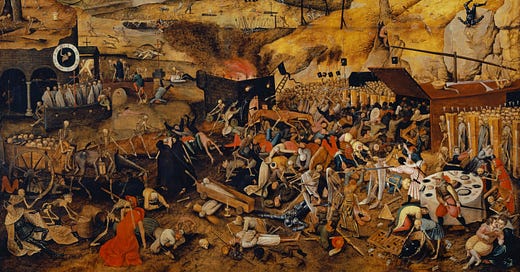



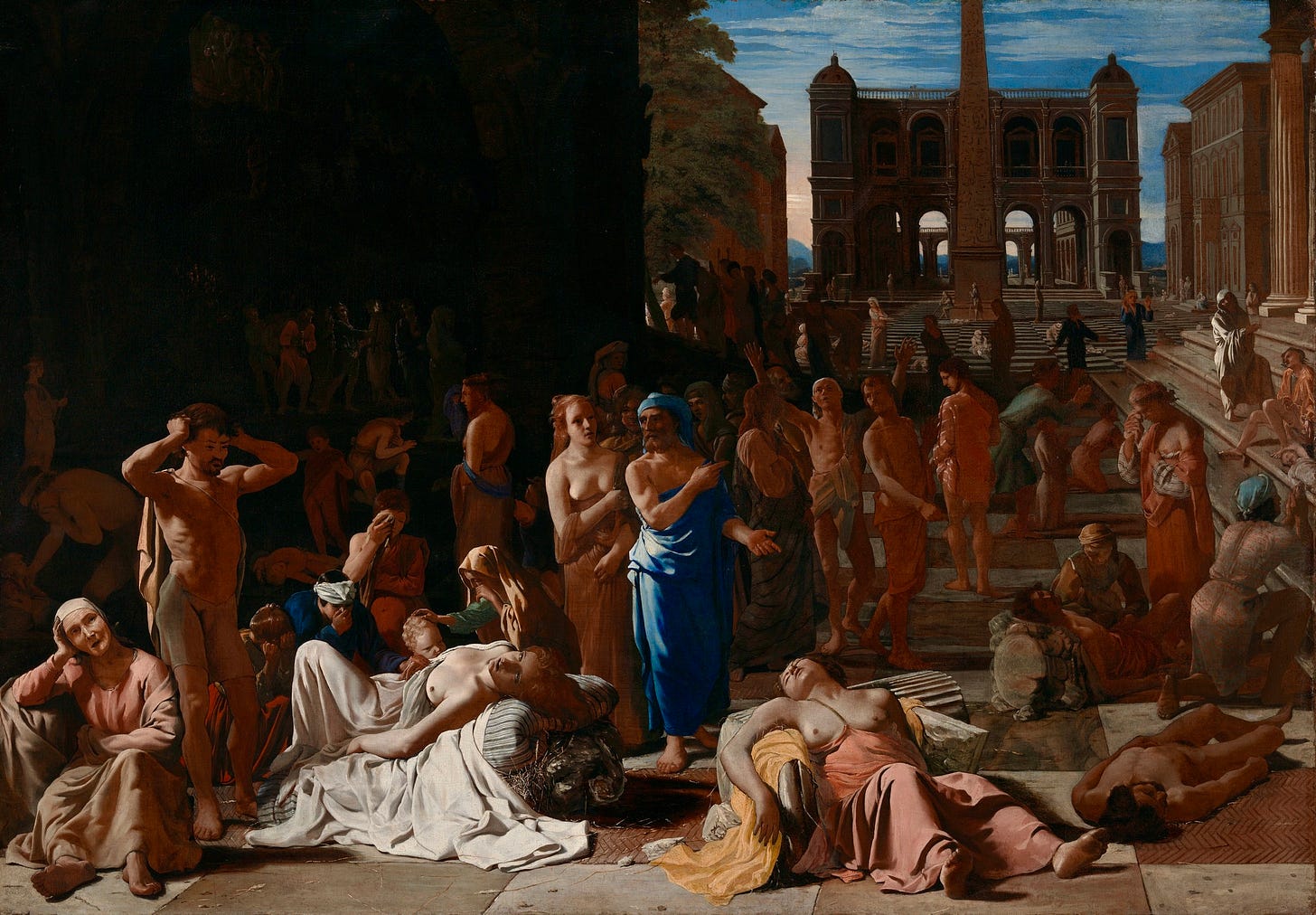
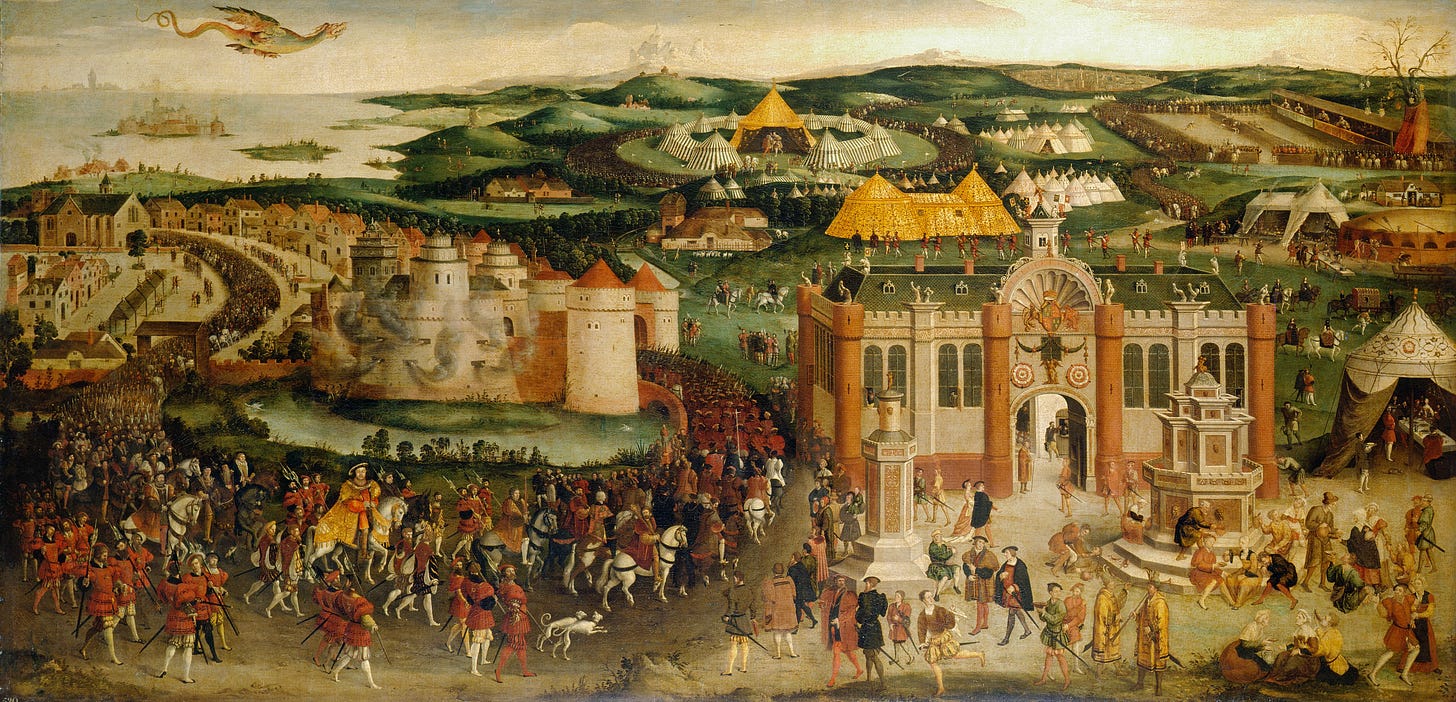
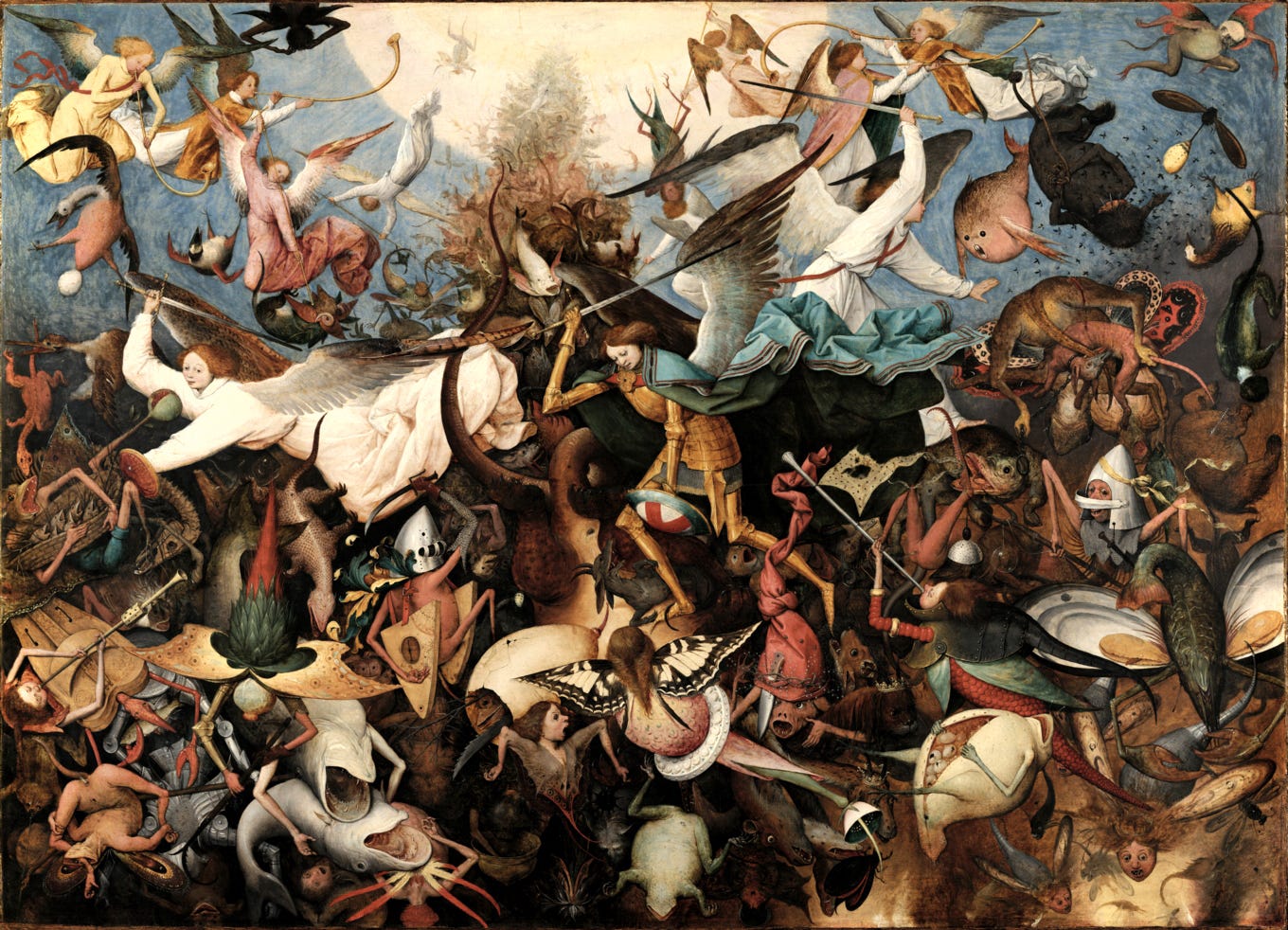
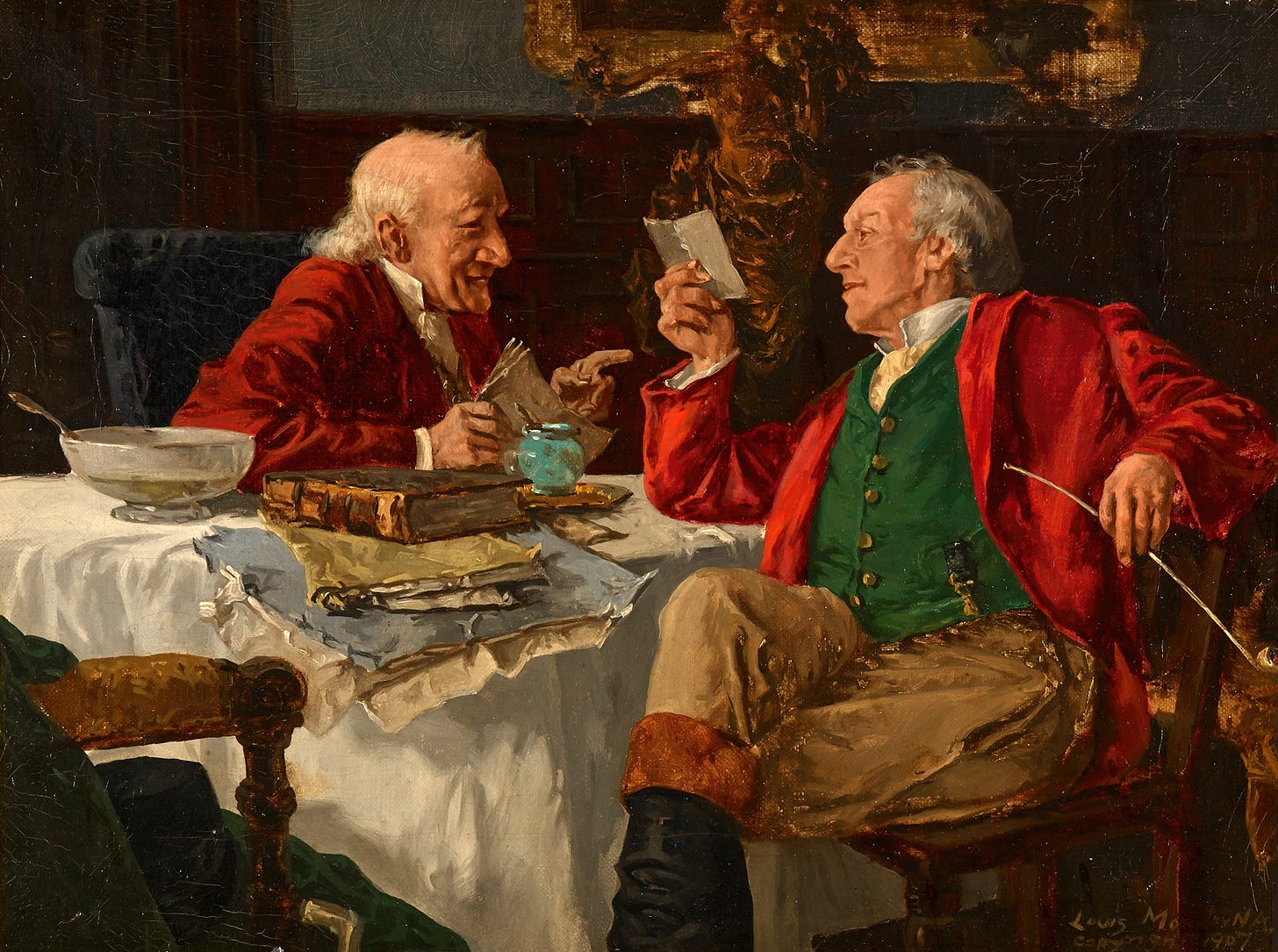
"Can we blame the French?"
Silly Colin, it doesn't matter if we *can* — we most certainly will, regardless!
Great article, as always 😉
Great post, Colin. I have a question about accents. Why don't Americans and Canadians sound like Aussies and Kiwis?